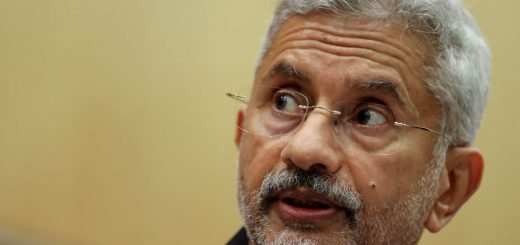Indian Foreign Secretary speaks at Aspen Centre: India’s Neighbourhood Policy to India’s Vaccine Maitri
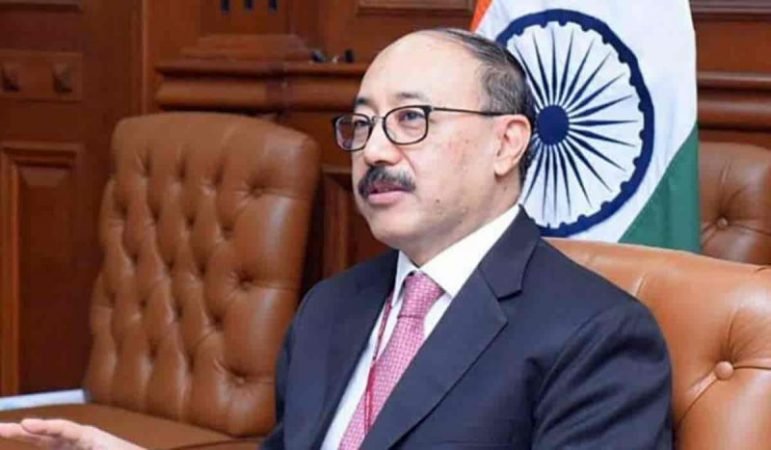
On 15th March 2021, the Indian Foreign Secretary Harsh Vardhan Shringla addressed at Ananta Aspen Centre on the theme ‘What Next for Neighbourhood First?’. Shringla started his talk by stating that ‘India’s destiny is inextricably linked with its neighbourhood’. He also emphasized the Indian neighbours’ uniqueness and special strategic significance to India as they are deeply interconnected with India through cultural, historical and geographical ties; and also, because the internal and external policy of Indian and its neighbours intersect and overlap with each other. The Foreign Secretary stated distinctly that neighbourhood remains India’s primary diplomatic arena and hence neighbourhood remains India’s first and foremost priority in the foreign policy. He gave the example of the Neighbourhood First Policy which is a central pillar of India’s foreign and security policies since 2014, the policy targets to give primacy to the Indian neighbourhood in its diplomatic efforts.
The address also highlighted India’s increasing interactions with its neighbours under PM Narendra Modi’s vision of “Sabka Saath, Sabka Vikas, Sabka Vishvas” because of which India now interacts with its neighbours more frequently, at different levels with a constructive and open spirit. The Foreign Secretary informed that India’s Lines of Credit to its neighbours has also shown an upward trend from USD 3.27 billion in 2014 to USD 14.7 billion in 2020 due to the stronger development relationship which India now shares with its neighbours, increasing exchange of energy with its neighbours and frequent visits within the neighbourhood in large numbers through better physical connection has also facilitated the increase in credit.
Mr Shringla also accentuated a large number of quick gestation and high impact projects undertaken by India which directly aims at benefiting communities and he also talked about the growing trade and investment among India and its neighbourhood, which includes Afghanistan, Bangladesh, Bhutan, Maldives, Myanmar, Nepal and Sri Lanka which has resulted in an increase in trade from USD 19.4 billion to USD 26.455 billion in the last six years. This growth has both significantly contributed and benefitted India to enhance its connectivity and to improve its border infrastructure.
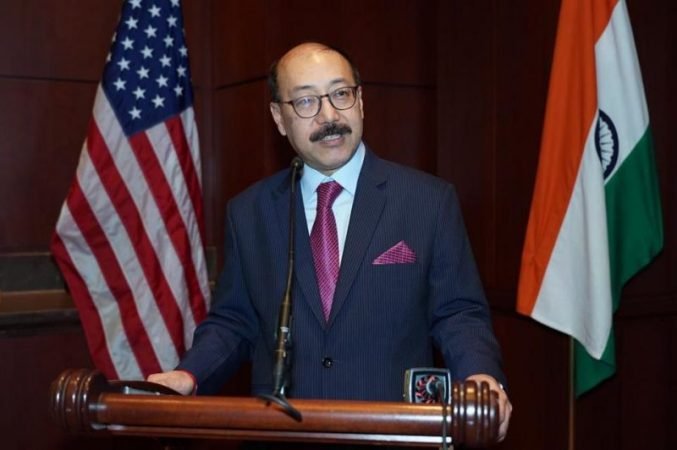
The Foreign Secretary also discussed the ‘Vaccine Maitri’ an Indian policy that makes a complex and far-reaching effort to make India’s vaccine available for the greater good of mankind in these difficult times, and is also ‘Neighbourhood First Policy’ in action. India launched its vaccine roll out on 16th January and since then vaccines have reached all the neighbouring countries. The Prime Minister has taken major steps, from organizing meetings involving neighbouring countries which aimed at facilitating collaboration on COVID-19 to addressing the health Secretaries and technical experts of the neighbouring countries where he proposed several initiatives to facilitate regional cooperation in the area of healthcare. India has also organized various online training programmes for health professionals from neighbouring countries.
The World Economic Forum described South Asia as the world’s largest growing region. Thus, India’s ‘Neighbourhood First Policy’ has a strong economic dimension as India believes that the greater economic integration within the region has been known to produce a whole that is larger than the sum of its parts as a result India lays great emphasize on augmenting connectivity, whether its physical, economic, energy, digital and or even cultural, this will induce a virtuous cycle in which connectivity and growth will feed each other.
The Indian Foreign Secretary also updated about India’s initiative to work on newer domains such as the digital and cyber world, space and civil nuclear cooperation. The MEA is also working within the Government of India to bring the government’s focus to policies and projects that are related to its neighbourhood. India is also working with its neighbours not just bilaterally but also in plurilateral and regional constructs. India is also working to enhance security amongst its neighbourhood and is trying to tackle both traditional and non-traditional challenges such as piracy, terrorism, human trafficking and drug trafficking.
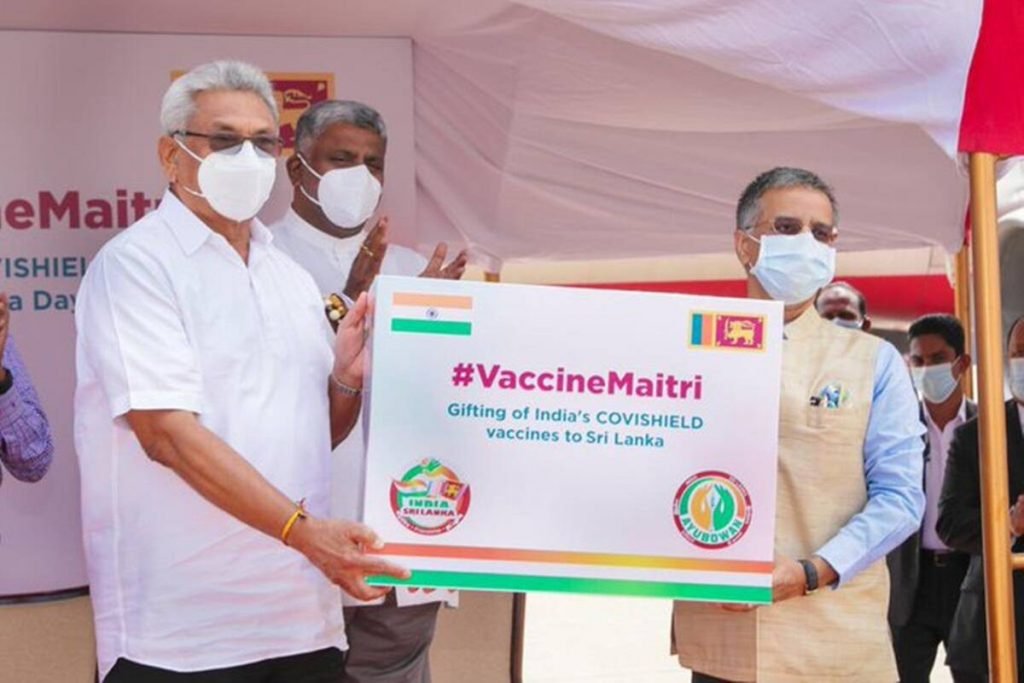
The Foreign Secretary clarified that the ‘Neighbourhood First Policy’ emphasizes both the economic and political aspect. This is evident by the invitation sent to all the South Asian Leaders to attend the 2014 swearing-in ceremony which has been followed by sustained political contact between its neighbourhood. India has tried to maintain this consistent political contact throughout the lockdown and travel disruptions of the pandemic.
Mr Shringla also expressed India’s desire to maintain good neighbourly relations with Pakistan and India’s commitment to addressing the issues bilaterally and peacefully related to Pakistan. However, India has left the onus on Pakistan to create a conducive atmosphere to facilitate these meaningful dialogues. India has also been following developments relating to the Afghan Peace Process and Myanmar. In the speech, the Foreign Secretary mentioned ‘We feel that people on the ground should not suffer” thus India will continue to monitor closely the situation in Myanmar and will engage with like-minded countries to meet the hopes and aspirations of the people. He also suggested that the International Community must work together and should lend its meaningful support at this critical point to save the people of Myanmar from suffering.
India has made a massive investment in infrastructure which has helped India in making progress due to enhanced connectivity with its neighbouring countries. Apart from highways and railway connectivity, India is also constructing a network of land ports and integrated check posts which are being built on its border to upgrade the cargo transhipment and passenger transit experience. Air connectivity has also been improved.
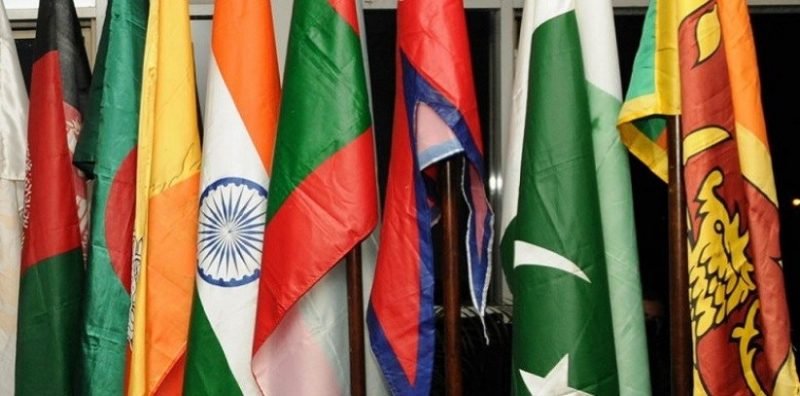
India is one of the countries of the sub-region, which is getting promoted as an energy hub, has constructed many cross-border pipelines and small radial interconnection in its neighbourhood. This can be seen as a transformative step by India in promoting regional trade of electricity and energy with the neighbouring countries. Besides the trade in energy and electricity, India has also taken the lead in creating power capacity that is available to the region. India has set up hydropower power, thermal power and solar power plants in its neighbouring countries. This initiative taken by India to produce clean energy will also enable it to fulfil its Paris Commitments.
The Foreign Secretary mentioned that the Indian development partnership underpins its ‘Neighbourhood First Policy. From constructing hospitals, educational institutions, setting up ambulance projects to reconstructing houses after the tsunami in the neighbourhood countries, the Indian approach towards its neighbours has always been people-centric and human-centric. Thus, Indian development policies aim to improve the lives of the people. As the stability, growth and prosperity of India’s neighbour will ultimately help India. Thus, the neighbourhood will get the greatest attention, the neighbourhood will also get the greatest priority in the allocation of funds and resources. As India is committed to improving the well-being of the region, it will be a force for good in the neighbourhood.



